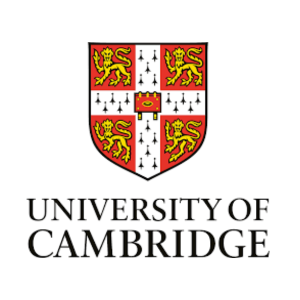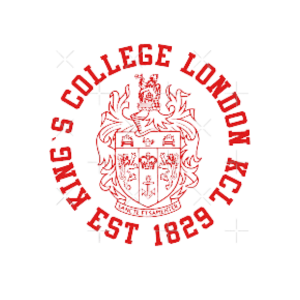UK
Overview of the UK
The United Kingdom, an island nation off the northwestern coast of mainland Europe, comprises England, Scotland, Wales, and Northern Ireland. Known for its rich cultural heritage, it experiences a temperate maritime climate with mild winters and cool summers. The UK boasts a well-developed healthcare system, primarily the NHS, and an extensive public transport network including trains, buses, and the iconic London Underground.

With world-class infrastructure, the UK ranks highly in global indices for education, innovation, and economic competitiveness. It is a popular destination for immigrants, offering robust legal protections and opportunities across various sectors. The country’s diverse job market, thriving industries, and vibrant cultural scene contribute to its appeal as a global hub for professionals and students alike.
Percentage Distribution of Non-Immigrant Student Visa Holders in UK (2014-2023 In Percentage)
Percentage Distribution of Non-Immigrant Visa Holders in UK (2014-2023 In Percentage)
VISAS
Climate and Seasons

SPRING
March to May
Min 4°C to Max 15°C

SUMMER
June to August
Min 11°C to Max 22°C

AUTUMN
September to November
Min 8°C to Max 17°C

WINTER
December to February
Min 1°C to Max 8°C
WHY STUDY IN UK?
Studying in the United Kingdom offers a world-class education with globally recognized degrees and a rich cultural experience. The UK boasts prestigious universities such as Oxford and Cambridge, providing access to cutting-edge research and expert faculty. With a diverse range of programs, students can pursue their passions and tailor their education to their career goals. The country’s vibrant multicultural environment enhances personal growth and global networking opportunities. Additionally, the UK’s strategic location in Europe allows for easy travel and exploration of neighboring countries. Students benefit from a robust support system, including academic assistance, career services, and various extracurricular activities. The English language immersion improves communication skills, which is valuable in the global job market. Overall, studying in the UK combines academic excellence with cultural enrichment, making it a top choice for international students.
COURSES
Computer Science
Business Analytics
MBA
Mechanical Engineering
Major Courses Opted by Students (2014-2023)

Test Preparation at PVR Global Educational Services
PVR Global Educational Services offers tailored training for GRE, IELTS, PTE, SAT, GMAT, and Duolingo tests. Expert instructors provide personalized study plans, practice materials, and mock exams to boost proficiency in reading, writing, listening, speaking, and quantitative skills. Flexible scheduling and comprehensive support help students achieve high scores and succeed in their academic and professional endeavors.
Quick Facts about UK
Home to world-renowned institutions like Oxford, Cambridge, and Imperial College, offering diverse and high-quality academic programs.
English is the primary language of instruction, providing immersion and enhancing communication skills for global career opportunities.
Experience a rich multicultural environment with students from around the world, fostering global networking and cultural exchange.
The UK offers rigorous academic standards and innovative teaching methods, recognized globally for their excellence in various fields.
Universities provide comprehensive support services, including academic advice, career counseling, and mental health resources to ensure student success.
International students can work part-time during their studies and have post-graduation visa options to gain work experience in the UK.
he UK’s central location in Europe allows for easy travel to other European countries, enriching the study abroad experience.
Courses Opted by International Students in UK (2014-2023 In Percentage)
Education System in UK
Education for children aged 5 to 16, divided into Key Stages, providing foundational knowledge and skills.
Grade System: Grades range from A to U in exams like GCSEs.
Duration: Primary (ages 5-11), Secondary (ages 11-16).
Average Fee: Public schools are free; private schools charge approximately £12,000–£15,000 per year.
Overview: Includes further education (post-16) and higher education, offering vocational training and academic studies.
Grade System: A-levels and vocational qualifications; higher education uses classification system (First, 2:1, 2:2, Third).
Duration: A-levels (2 years), vocational courses vary.
Average Fee: Further education is typically free; higher education fees are around £9,250 per year.
Overview: Undergraduate degree typically offered by universities, requiring completion of coursework and exams.
Grade System: Honours classifications: First, 2:1, 2:2, Third.
Duration: 3 years (England, Wales, Northern Ireland); 4 years in Scotland.
Average Fee: Approximately £9,250 per year for UK students; higher for international students.
Overview: Postgraduate degree focusing on advanced study in a specific field, requiring coursework and a dissertation.
Grade System: Classifications: Distinction, Merit, Pass.
Duration: 1 year full-time, 2 years part-time.
Average Fee: £10,000–£20,000 per year for UK students; higher for international students.
Overview: Advanced research degree requiring original research and a thesis.
Grade System: Awarded as Pass or Fail; no specific grading.
Duration: Typically 3-4 years full-time, 5-6 years part-time.
Average Fee: £4,500–£20,000 per year; varies by institution and student status.

Identifying the Right Institution
Look for universities with high rankings in global and national league tables, reflecting quality teaching and research output.
Check if the university is accredited by recognized bodies and holds memberships in prestigious educational associations.
Evaluate if the university offers a wide range of courses and specializations aligned with your academic and career goals.
Consider universities with strong research programs and facilities, providing opportunities for student involvement in cutting-edge projects.
Review the qualifications and achievements of faculty members, ensuring they are experts in their fields with notable research contributions.
Assess the availability of comprehensive support services, including academic advising, career counseling, and mental health resources.
Investigate the strength and global reach of the university’s alumni network, which can offer valuable career connections and opportunities.
No of Students placed in different sectors (2014-2023 In Percentage)
Success Rate of Indian Students in the UK by Sector (2014-2023 In Percentage)
Getting a UK Visa
Identify the visa category suitable for your purpose, such as student, work, or visitor visa. Ensure it aligns with your specific needs and circumstances for traveling to the UK.
Review the specific requirements for the visa type you’re applying for. This includes eligibility criteria, necessary documents, and any additional conditions set by the UK Home Office.
Collect all necessary documents such as passports, proof of funds, acceptance letters, and other supporting materials. Ensure they are current and meet the visa application guidelines.
Register on the UK government’s visa application website to manage your application. This account will help track your progress and communicate with the visa authorities.
Fill out the online visa application form accurately, providing detailed information about your personal background, travel plans, and reasons for your visit. Double-check for completeness and accuracy.
Pay the required visa application fee using a credit or debit card. The fee amount varies based on the visa type and length of stay. Keep the receipt as proof of payment.
Schedule and attend a biometrics appointment to provide your fingerprints and photograph. This step is necessary for identity verification and is typically required for most visa applications.
If required, attend an interview at a UK embassy or consulate. Be prepared to answer questions about your application, financial status, and travel intentions. Ensure you bring necessary documents.
After submission, monitor your application status and wait for the processing period. Processing times vary depending on the visa type and workload at the consulate or embassy.
Once processed, you will receive your visa decision. If approved, check the visa details for accuracy and ensure it meets your travel and stay requirements.
Ensure all information is accurate and complete to avoid delays. Apply well in advance of your travel date, and keep copies of all documents and receipts for your records.
List of Universities




































Intake details
Intake | Start Dates | Remarks | |
|---|---|---|---|
Fall | September | Main intake for most undergraduate and postgraduate programs. | |
Spring | January | Limited programs; often includes specific courses and postgraduates. | |
Summer | May to June | Typically for short courses and pre-sessional English programs. | |
Winter | November to December | Available for some postgraduate courses and specific programs. |
Deadlines
Deadline Type | Fall Intake | Spring Intake |
|---|---|---|
Scholarship Deadlines | March to May | September to October |
Admission Deadlines | June to August | November to December |
Best Time to Start the Process | September to November | April to June |
Last Date to Apply for Admission | July 31st | December 15th |
Documents required
Document Type | Requirements | Remarks |
|---|---|---|
Passport | Valid passport with at least 6 months validity | Ensure the passport is in good condition and meets validity requirements. |
Application Form | Completed application form | Must be filled out accurately and completely. |
Transcripts | Academic transcripts from previous institutions | Certified copies may be required. |
Letters of Recommendation | Usually 2-3 letters from academic or professional referees | Should be recent and on official letterhead. |
Statement of Purpose | Personal statement outlining goals and motivations | Tailor it to the specific program or university. |
English Language Proficiency | IELTS, TOEFL, or equivalent test scores | Required for non-native English speakers; check specific score requirements. |
Proof of Funds | Bank statements or financial documents proving ability to cover tuition and living expenses | Ensure documentation is recent and accurately reflects financial status. |
Visa Documents | Visa application form, biometric appointment details, and supporting documents | Typically required for application forms and visas. |
Passport-size Photographs | Recent passport-sized photographs | Mandatory for all international students in Australia. |
Application Fee Receipt | Proof of payment for the application fee | Keep a copy of the receipt for verification. |







